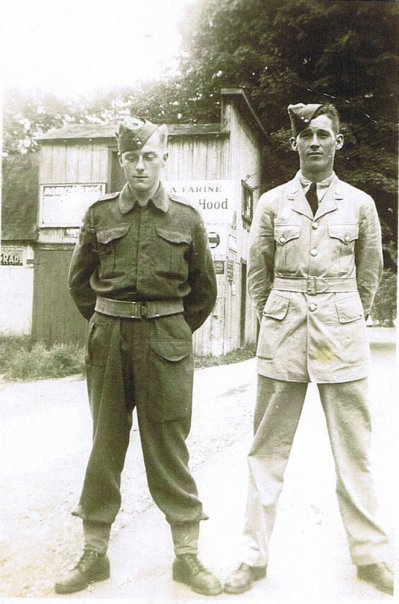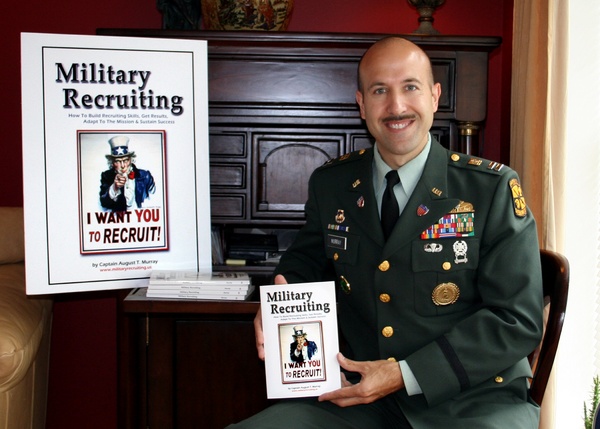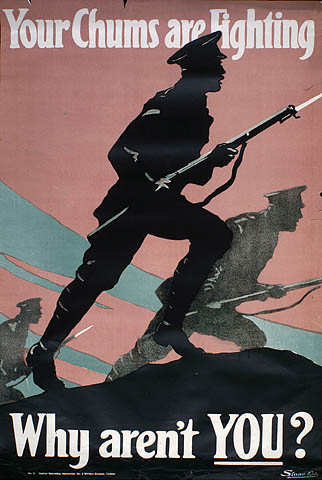 The fear over what is now regularly termed Islamic radicalization is much in the news these days, what with so-called Jihadi John‘s identity being determined and yet more stories appearing in the news concerning young people apparently leaving North America or Europe to travel to the Middle East to join ISIS’s fight against what I guess we might as well just call the West.
The fear over what is now regularly termed Islamic radicalization is much in the news these days, what with so-called Jihadi John‘s identity being determined and yet more stories appearing in the news concerning young people apparently leaving North America or Europe to travel to the Middle East to join ISIS’s fight against what I guess we might as well just call the West.
So the problem that we’re all preoccupied with is trying to understand why anyone would willingly wish to join such groups — there must be an explanation to account for it.
What kind of person would do such a thing?
For instance, take this recent Wall Street Journal article, written by a member of the European Parliament, which concludes as follows:
 Unscrupulous people preying on the vulnerable…. The beauty of this account is that we can rest assured that normal people, like you and me, would never do such a thing.
Unscrupulous people preying on the vulnerable…. The beauty of this account is that we can rest assured that normal people, like you and me, would never do such a thing.
But isn’t it probably a little more complicated, a little more subtle, than this?
So let’s back up and entertain, for the moment, that the things that we choose to explain, in order to make sense of those situations that strike us as curious or perhaps anomalous, tell us much about the set of assumptions that we bring to the world and thus the way we think the world ought to operate.
For instance, if you think heterosexuality is a norm, predetermined by either nature or God, then you’re probably pretty puzzled by the existence of gay people (and so, to make sense of all this, will you condemn them? Ostracize them? Look to genetics or environment for the reason? Maybe imprison or try to convert them?). However, if you think human sexuality exists across an inevitably broad and ambiguous spectrum, then people picketing to prevent some people’s right to marry will probably be seen by you as bizarrely curious and in need of some sort of accounting (will you put their stark right/wrong and normal/abnormal reasoning down to their poor educational level? Church affiliation? Lack of worldliness and so-called close-mindedness? Maybe their own closeted homosexual tendencies can account for it…?).
So it seems that it’s not difficult to imagine that, when it comes to anything that we take as anomalous, and in need of an explanation (“Explain yourself!” says the parent to the misbehaving child), there likely exists an alternative point of view, one beginning from rather different first principles, and taken as self-evident to some other group no less than we hold our own views — a group that would end up finding nothing in particular odd about those things that bedevil us and about which we feel so compelled to develop an explanation.
One person’s anomaly may well be another’s unnoticed commonplace.
Case in point: in our own society we dedicate a massive amount of funding to the military and, being an all volunteer force these days, its ranks are filled through a variety of marketing efforts that we call recruiting. (Churches call it either outreach or missionizing, but that’s another post all together.) From ROTC programs on university campuses to recruiters at a booth in a shopping mall, from airshows awing people with fighter jet aerobatics to commercials of battleships on the prowl in the ocean and even including signing bonuses, the various branches of the military understandably invest tremendous time and energy and resources to find new recruits.
 That we would probably never explain someone’s involvement in the military as the product of radicalization is the interesting thing, to me, for given our assumptions about the importance of homeland and patriotism, about duty, service, and sacrifice, I’m pretty confident that most (but hardly all) of us would see signing up as so natural, so valuable, as to need no explanation whatsoever. For there’s nothing anomalous to being trained to go to war with our enemies; it doesn’t even catch our attention and the editors of the Wall Street Journal aren’t trying to find someone to explain it to their readers.
That we would probably never explain someone’s involvement in the military as the product of radicalization is the interesting thing, to me, for given our assumptions about the importance of homeland and patriotism, about duty, service, and sacrifice, I’m pretty confident that most (but hardly all) of us would see signing up as so natural, so valuable, as to need no explanation whatsoever. For there’s nothing anomalous to being trained to go to war with our enemies; it doesn’t even catch our attention and the editors of the Wall Street Journal aren’t trying to find someone to explain it to their readers.
Move along, folks. Nothing here needs explaining.
The only puzzling thing is why anyone wants to go to war with us.
Consider my own father (pictured at the top, on the right, as a new recruit, along with his late cousin), who was born in 1923 and who served in Europe as a volunteer member of the Canadian army during World War II — that old photo of a skinny young man in uniform, standing at ease with his cap at a cocky angle, is virtually a family heirloom. Who could imagine approaching his service in terms of trying to account for the reasons why he was radicalized?
It’s almost blasphemous to even ask that sort of question, right?
Yet it might not take much of a change in viewpoint in begin to question the factors that needed to be in place for that young man, the oldest son of a large family who was working to help support his mother and siblings, to leave his fatherless family in rural Quebec, travel across the ocean, to be prepared to risk his life in order to — let’s be frank — kill other people, all for the sake of sets of assumptions that he and others shared and presumably held dear, concerning such things as where and how people like himself ought to be able to live and work and raise their families (what we often call “our way of life” when we give speeches about why we go to war). A sociologist explaining why people opt to enlist might find all of this curious (was it because of his economic status? He did send half his military pay home each month… What about the wartime propaganda, what effect did it have?).
 And a conscientious objector at the time might have been utterly fascinated by my father’s choice — though, given how much of a minority they were at the time, those trying to decline military service were themselves the anomaly in need of explanation (and, perhaps, detention). Or what about all those Canadians who did not volunteer and who were eventually conscripted into service — quite a few of whom were in Quebec, as I recall; wouldn’t they be curious to explain why he went before being told to go?
And a conscientious objector at the time might have been utterly fascinated by my father’s choice — though, given how much of a minority they were at the time, those trying to decline military service were themselves the anomaly in need of explanation (and, perhaps, detention). Or what about all those Canadians who did not volunteer and who were eventually conscripted into service — quite a few of whom were in Quebec, as I recall; wouldn’t they be curious to explain why he went before being told to go?
 If we can figure out why many of us don’t find our own military’s recruiting ads curious, and why we don’t but, in fact, probably can’t see them as part of a radicalization process from which we benefit, then maybe we’ll begin to understand why some they are picking up and leaving for Syria to take up arms against those with whom we’re allied. For we are their Other and no doubt they’re working hard to ensure their recruits know right from wrong, good from bad, and friend from foe, just as we are — though our right, our good, and our friends constitute what they’re fighting against. But failing to see these two situations as anomalous — in both cases people decide to participate in coercively violent institutions designed to attack those found to be disagreeable — is probably key to being able to normalize and thereby overlook one and radicalize the other.
If we can figure out why many of us don’t find our own military’s recruiting ads curious, and why we don’t but, in fact, probably can’t see them as part of a radicalization process from which we benefit, then maybe we’ll begin to understand why some they are picking up and leaving for Syria to take up arms against those with whom we’re allied. For we are their Other and no doubt they’re working hard to ensure their recruits know right from wrong, good from bad, and friend from foe, just as we are — though our right, our good, and our friends constitute what they’re fighting against. But failing to see these two situations as anomalous — in both cases people decide to participate in coercively violent institutions designed to attack those found to be disagreeable — is probably key to being able to normalize and thereby overlook one and radicalize the other.
Which makes radicalization a rhetorical and not a descriptive term.
All of which brings to mind how aghast many of us are over the gruesome beheadings that ISIS seems to so casually carry out and film. That nation-states the world over, including the U.S. of course, routinely carry out executions — sometimes doing it quite publicly — is probably not in the mind of someone confronting ISIS’s admittedly grizzly videos. But consider the opening lines to a recent Newsweek story:
 The difference, I’d argue, is that the modern nation-state has so taken hold in our minds as the only legitimate way to organize large groups of people into imagining themselves as sharing an identity that when another party engages in the very same behaviors or when adversarial groups challenge the nation-states asserted monopoly over using coercive violence in support of achieving its interests, well, we can’t help but overlook the local and the familiar as normal while being utterly mesmerized by the fearful exotic that has encroached on our turf.
The difference, I’d argue, is that the modern nation-state has so taken hold in our minds as the only legitimate way to organize large groups of people into imagining themselves as sharing an identity that when another party engages in the very same behaviors or when adversarial groups challenge the nation-states asserted monopoly over using coercive violence in support of achieving its interests, well, we can’t help but overlook the local and the familiar as normal while being utterly mesmerized by the fearful exotic that has encroached on our turf.
We execute while they behead. We recruit while they radicalize. They’re lawless but we have faith in our institutions that determine who lives and dies…
Or do we?
Bucking this trend and, instead, seeing these situations as entirely anomalous — which hardly means that they are the same or that they are identical but, instead, that they simply can serve as comparable instances that help us to think through a particular problem: e.g., how normalcy and exoticness are created and managed to this or that group’s benefit — would help us to understand the important role of self-beneficial double standards in all acts of social formation (our own included — do parents live by the rules they lay down for their kids?). It would then help us to understand the mechanisms whereby social actors create inhuman demons against which to fight; not that seeing these devices will suddenly bring about world peace but it might be surprisingly helpful if we wish to change the course of conflicts in which we’re involved, since those with whom we disagree are marshaling their supporters by directing these very techniques at us.
If we don’t feel like the demonic enemy others sometimes make us out to be then perhaps understanding how these systems of representation work might be the first step toward changing the narrative.

One Reply to “Move Along Folks, Nothing to Explain Here”
Comments are closed.